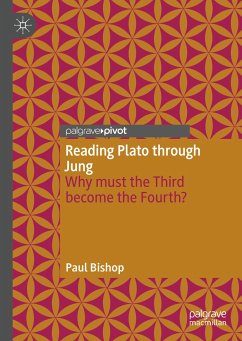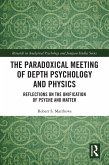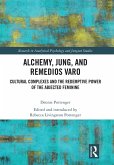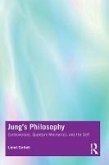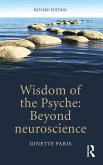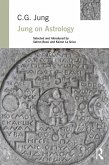"Crafted with Bishop's usual assiduity and delightful style, this book provides much needed clarification of Jung's complex relation to Plato, and Jung's cryptic accounts of the Third and the Fourth."
-Lucy Huskinson, Professor, Bangor University, UK.
"Bishop's masterful analysis [reveals] a key to understanding the real-world significance and ethical challenge of Jung's entire clinical and cultural thought."
-Roderick Main, Professor, University of Essex, UK.
"This is a book brimming with original ideas and new connections [...]. I highly recommend this to anyone interested in the living legacy of Platonic thought and its influence on depth psychology." -Phil Goss, Associate Professor, University of Warwick, UK, and Jungian Analyst.
This book examines the Jungian imperative that the Third must become the Fourth through the lens of Carl Jung's complex reception ofPlato. While in psychoanalytic discourse the Third is typically viewed as an agent that brings about healing, the author highlights that, in the case of Jung, an early emphasis on the Third as the "transcendent function" gave way to an increasing insistence on the importance of the Fourth. And yet, he asks, why must "the Third become the Fourth"?
Paul Bishop begins with a survey of work on Jung's relation to Plato, before turning to Jung's readings of the Timaeus and Black Books, as well as Goethe's Faust II and Nietzsche's Zarathustra. He proceeds to unpick Jung's statements on the Third and the Fourth though a compelling analysis of how Jung draws upon religious and alchemical traditions, Pythagorean numerology, his own dream-like experiences and Plato's cosmology. This book will appeal to practitioners and to scholars working in the history of ideas, psychoanalysis, philosophy,and psychoanalytic theory.
Dieser Download kann aus rechtlichen Gründen nur mit Rechnungsadresse in A, B, BG, CY, CZ, D, DK, EW, E, FIN, F, GR, HR, H, IRL, I, LT, L, LR, M, NL, PL, P, R, S, SLO, SK ausgeliefert werden.
Es gelten unsere Allgemeinen Geschäftsbedingungen: www.buecher.de/agb
Impressum
www.buecher.de ist ein Internetauftritt der buecher.de internetstores GmbH
Geschäftsführung: Monica Sawhney | Roland Kölbl | Günter Hilger
Sitz der Gesellschaft: Batheyer Straße 115 - 117, 58099 Hagen
Postanschrift: Bürgermeister-Wegele-Str. 12, 86167 Augsburg
Amtsgericht Hagen HRB 13257
Steuernummer: 321/5800/1497
USt-IdNr: DE450055826
Bitte wählen Sie Ihr Anliegen aus.
Rechnungen
Retourenschein anfordern
Bestellstatus
Storno

